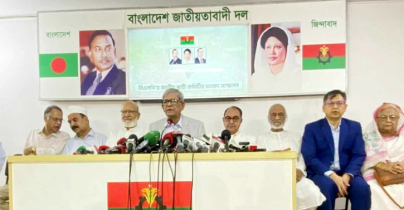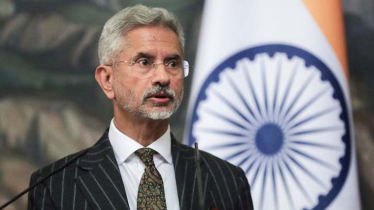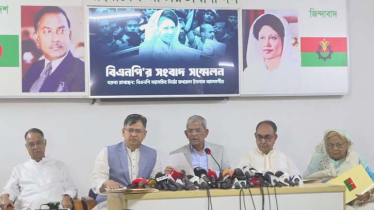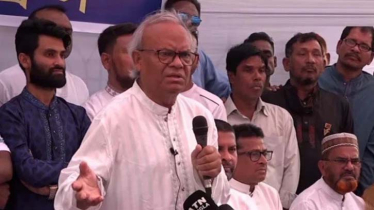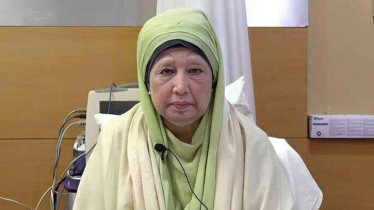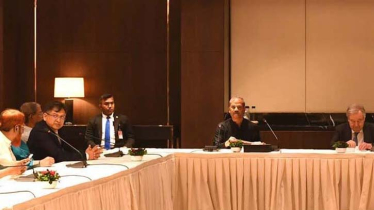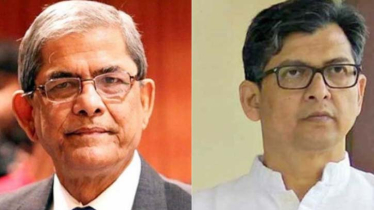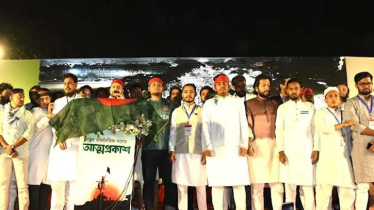
Photo: Messenger
Bangladesh Nationalist Party (BNP), the main opposition force in the country, finds itself in a precarious situation after a prolonged period out of power. The party's leadership crisis has left it directionless, as several key factors have converged. Begum Khaleda Zia, the party's chairperson and former prime minister, has been sidelined from active politics due to a corruption conviction and deteriorating health.
Meanwhile, the acting chairman is also residing abroad. This absence of top-tier leadership has severely hampered the BNP's ability to mount effective anti-government movements, with repeated failed attempts to rally supporters and challenge the ruling party's grip on power.
Party leaders and activists have been embroiled in cases for participating in these movements. Still, there are allegations of forming committees in exchange for money within the BNP. Furthermore, the party's politics is on the back foot as it has failed to improve relations with the neighbouring country, India. In the current situation, BNP leaders are also extremely indecisive about the way forward.
BNP leaders claim that there is no normal politics in the country. They argue that the Awami League has taken the country towards an undemocratic path. Hence, they assert that the struggle for democracy is not easy in the ongoing political crisis.
After winning the national elections in 1996 and 2008, the Awami League formed governments, and the BNP was the opposition party in parliament during those two terms. Additionally, after the BNP's tenure ended in 2006, a special situation like 1/11 was created in the country. During that time, like leaders of other political parties, Begum Khaleda Zia was also jailed. Moreover, after being released from jail and with the burden of cases on her shoulders, the current acting BNP chairman, Tarique Rahman, went abroad in March 2007.
After winning the 2008 election and forming the government, the caretaker government system was abolished. Later, in the 2014 general election held under the Awami League government, the BNP boycotted the polls on January 5. Despite intense movements before and after the election, the party failed to overthrow the government. The BNP alleges that the neighboring country, India, intervened directly to keep the Awami League in power. As a result, the Awami League formed the government through a one-sided election. Subsequently, a large number of cases were filed against BNP leaders and activists. In 2017, BNP Chairperson and former Prime Minister Begum Khaleda Zia was sentenced in a corruption case.
In the absence of top leader Khaleda Zia, the BNP participated in the 11th National Parliament elections in 2018 under the banner of Jatiya Oikyafront, accepting Dr. Kamal Hossain as the leader. However, the BNP was defeated in that election, losing to the Awami League's political strategy. After that, during the Covid-19 pandemic, the party started a program demanding elections under a non-partisan caretaker government.
Well before the 12th National Parliament elections, the BNP announced that it would not participate in the polls under a partisan government and took to the streets. On December 10, 2022, from a rally in Dhaka, the BNP announced 10 demands and launched a simultaneous movement. The US sanctions on some current and former RAB officials, as well as the US visa policy and Western powers' interest in ensuring a neutral election in Bangladesh, gave momentum to the BNP's movement.
Subsequently, the 12-party alliance, Samomona Ganatantrik Jote, Gana Adhikar Parishad, Jamaat-e-Islami, LDP, Barrister Andalib Rahman Partha's Bangladesh Jatiya Party, and nearly half a hundred other parties and organizations joined the BNP's simultaneous movement. Later, on July 12, the BNP announced a one-point movement for the resignation of the government, replacing the previous 10 demands, and continued its street agitation. However, despite the BNP and its allies taking to the streets after boycotting the partisan elections, the movement did not gain much traction. Even the party's own activists did not turn up in the field, especially after the police-BNP clashes in Nayapaltan on October 28, after which the government took a hardline stance, leading to a stalemate in the BNP's movement.
As a result, the Awami League managed to hold elections and win without much trouble. With the ‘Sheikh Hasina magic,’ the party formed the government again and is in a rather cheerful mood. On the other hand, BNP leaders and activists are in a difficult situation.
To understand the reasons behind the BNP's current predicament, The Daily Messenger contacted leaders and activists at various levels of the party. They said that the party's main leader, Khaleda Zia, is ill. Additionally, since she has been convicted in a corruption case, she cannot participate in any political activities, although her sentence has been suspended by an executive order of the government. Moreover, the acting chairman, Tarique Rahman, is in London facing numerous cases. Due to his absence from the country, he fails to grasp the real situation. In the absence of top leadership, some leaders of the party are now busy with factionalism and forming committees in exchange for large sums of money. The party's office claims that there are around 1.5 lakh cases against its 40 lakh leaders and activists.
Another major reason for the BNP's predicament is its failure to improve relations with the neighboring country, India, despite efforts. The mistrust that developed between the party and India during its tenure from 2001 to 2006 due to several reasons still persists. India has been unable to trust the BNP in any way. Consequently, India did not want to see any party other than the Awami League as a friendly alternative.
Overall, there are various discussions and opinions within the party about whether the BNP should launch an anti-government movement or carry out issue-based programs to keep the party active. Additionally, there are divisions over whether to fill the vacant posts through a council or coordination. In summary, the party is in a state of crisis.
Akkas Ali, the general secretary of the BNP's Ghuruliya Ward in Jessore Sadar Upazila, told The Daily Messenger, “The only thing people want is to vote. If voting rights are ensured, the government will fall. The party (BNP) has failed in that movement.”
Advocate Shahid Md. Iqbal Hossain, the convener and former mayor of Monirampur Upazila unit BNP in Jessore, said, “Despite numerous oppressions, no BNP leader or activist has left the party. So, the party is on the right track.”
Amir Khasru Mahmud Chowdhury, a member of the BNP's Standing Committee and the chairman of the party's Foreign Affairs Committee, told The Daily Messenger, “The ongoing anarchy in the country will not last long. People will restore their lost rights. Despite a difficult struggle against fascism, the pro-democracy forces will ultimately be victorious.”
It is noteworthy that in 1976, in a special context, Army Chief Ziaur Rahman assumed state power. Although he established the Nationalist Democratic Party in 1977, he later dissolved it on September 1, 1978, and founded the BNP. Ziaur Rahman became the chairman of the party. In 1979, Ziaur Rahman was elected President through elections held by the BNP.
After Ziaur Rahman's brutal assassination by renegade soldiers in 1981, Justice Abdus Sattar was elected as the chairman of the party. In 1984, during the military rule of H.M. Ershad, Ziaur Rahman's wife, Begum Khaleda Zia, was elected as the chairperson of the BNP.
After the fall of Ershad's government, the BNP won the 1991 national election and formed the government. Khaleda Zia's BNP formed a government for a brief period after winning the February 15, 1996 election. Subsequently, the BNP passed the caretaker government system in parliament and dissolved the parliament. Later, the Awami League won the election and formed the government. The BNP then won the 2001 election and formed the government again.
Messenger/Disha

